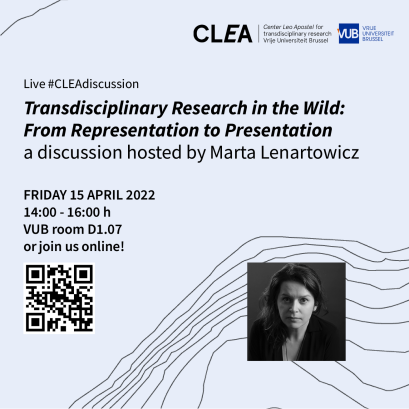The previous CLEA debate, ‘Transdisciplinarity: How is it Done?’, invited the academic community to revisit the practices of transdisciplinary research from a methodological and processual angle. Rather than focusing on the ideal(ised) constructs of outcomes and outputs, we attempted to look at the process: what does it take to make transdisciplinarity work?
In this session, hosted by Marta Lenartowicz, we are continuing on the theme, addressing some of the challenges and controversies identified in the previous seminar. Karin Verelst’s summary of the difference between representation versus presentation provides a fruitful framing for many of them. Seeking complementarity between theories, models, or research outcomes can be seen as the challenging task of compiling and synthesizing knowledge representations. Bringing diverse thinkers together, and hoping to establish complementarity between their various modes of engagement with the world, aims at a synergy of presentation. A graceful choreography (or adversarial collaboration!) then needs to be established between these particularly positioned and motivated agencies present in the room. As it was illustrated in Marcin J. Schroeder’s talk, the major difficulty of transdisciplinarity resides squarely in that room!
How do we make transdisciplinarity work? How do we move from transdisciplinary ideas to transdisciplinary research practices? Join the discussion this Friday!
Practical:
The CLEA seminars are taking place simultaneously at the VUB campus in Etterbeek, Brussels, and online (via Zoom) and are open to everyone interested!
When. Friday April 15, 2022 from 14:00 until 16:00h
Where (live). VUB campus Etterbeek, room D.1.07
Online. You can follow online via Zoom: https://tinyurl.com/yc82dwht

